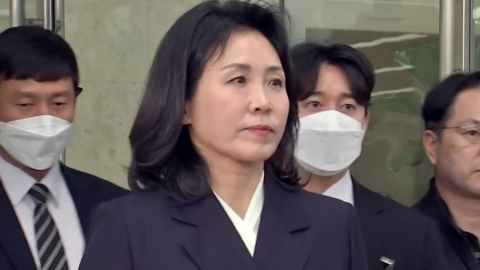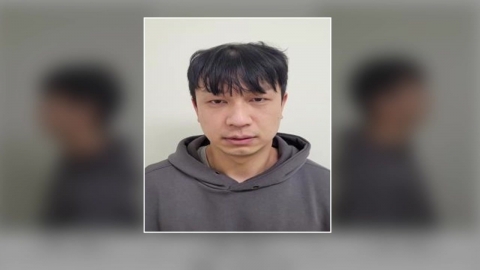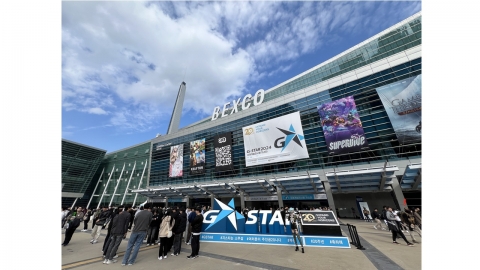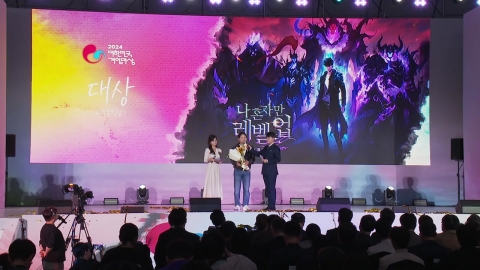■ Starring: Yoo Sang-im, Minister of Science and ICT
* The text below may differ from the actual broadcast content, so please check the broadcast for more accurate information. Please specify [YTN News PLUS] when quoting.
[Anchor]
It is time to move away from the past that followed the technology development of advanced countries and lead the global market by preempting new technologies on our own.
[Anchor]
To this end, the government decided to introduce a new research model based on innovation and actively support it by creating a technology industrialization ecosystem. Today, I invited Yoo Sang-im to YTN Studio, Minister of Science and ICT. Welcome.
[Paid]
How are you?
[Anchor]
The Yoon Suk Yeol regime is now two and a half years past the halfway point of its term. What are the achievements in the meantime?
[Paid]
A representative achievement is the system called the first R&D preliminary feasibility study, which was abolished. The cancellation of the designation by the public institution of the donation association. This is the first time that previous governments have initiated a new leading R&D innovation.
Second, we successfully launched two projectiles, the Danuri and the Nuri, to become the world's seventh largest space powerhouse, and the establishment of the National Aeronautics and Space Administration to open the space economy era. Second, we selected 12 national strategic technologies two years ago, and we began fostering AI semiconductors, high-tech bio, and quantum, which are the three major game changers. And lastly, it has made efforts to innovate AI digital across the country and is now ranked 6th in the world in global evaluation. These are the examples.
[Anchor]
I see. The second Trump administration is about to be launched. If that happens, AI, space commercialization, and various industries will expand in the United States, but we are also worried that electric vehicles and semiconductors will become a little difficult for us. What kind of measures do you have?
[Paid]
From Korea's point of view, there are areas where this is a bit of a concern and can be a new opportunity. In particular, it is expected that it will be difficult for us to resolve trade barriers between Sootl and U.S. big data on key emerging technologies, and investment in both AI and high-tech fields will expand, which could be a new opportunity for us.
[Anchor]
I think AI is developing too fast right now. You can see how important the Nobel Prize is just by looking at it. What is the government's plan for AI?
[Paid]
I can tell you that AI lives in the AI era now, and I expect a new world like that that we can't imagine now to unfold in the next 10 years. So our government took this opportunity to take this opportunity to take this opportunity to become an AI G3, and with this ambitious vision, the National AI Committee headed by the president was launched last September.
Let's expand the national AI computing infrastructure with a project called the four major AI flagship projects. Then, let's expand the private sector's AI investment. Let's implement it in a full scale to industrialize AI. Let's focus on AI security and safety. We started with this. The most urgent issue now is the rapid enactment of the AI Basic Law, which is to quickly expand AI computing infrastructure, and another is to create a trust base for the development of the AI industry so that the private sector can enter.
[Anchor]
As the transition to digital is accelerating, related crimes are also increasing. We often report such crime news, and I heard that the Ministry of Science and ICT has launched a digital people's livelihood support promotion group. Please explain what kind of group it is.
[Paid]
It's a part of solving digital dysfunctions. Another part is to support small business owners through digital, and it is being implemented for two main purposes. As you know, there is a thing called cueing damage through QR codes to resolve dysfunction.
This requires extensive education and publicity, so we are proceeding with it, and we will soon come up with and announce measures to strengthen security, such as invasion of privacy through hacking of IP cameras. Aren't small business owners struggling with other parts? So how can we help them? That's why I met platform companies last week.
Through them, we emphasized social responsibility and asked for help for small business owners. Also, today, I met with the representatives of major telecommunications companies and asked them to find a way to help small business owners.
[Anchor]
Can you explain in detail what the phishing damage is through the QR code?
[Paid]
Through QR codes, so-called voice phishing and these types of bad illegal mail come in and cause great damage. So, as we know, it comes in through the Internet in various types, and as we know, it's a new type of damage that comes in while taking a QR code.
[Anchor]
We can't know the information just by the QR code itself, so people who take pictures out of curiosity can be criminalized.
[Paid]
That's right. You ride it here and come in.
[Anchor]
As you said earlier, you held a meeting with CEOs of the three mobile telecommunications companies for the first time today, what was the main content here?
[Paid]
There have been a lot of talks, but three of them are important, and the first is the communication issue. It's such a problem because it's a national demand to keep lowering communication costs. Then, how can we eliminate the problem of spam mail and spam through communication, because this is inconvenient. We discussed how to communicate safely and conveniently on these issues.
The second is how to make the same efforts for the co-prosperity of small business owners as mentioned earlier. As we enter the second half of our current administration, one of the most important points of the president's resolution of polarization is to solve the problem of people's livelihoods, and the government will actively take action for small business owners and self-employed people. It's also part of this.
And lastly, the future investment, and eventually, these three experts must actively invest in Korea's AI in the future and fulfill their role as a private sector. That way, we can prepare for this AI era in Korea, so the government and the private sector became one team to invest in wired and wireless networks, or 6G, so let's work together to develop technologies from 5G to 6G, and prepare for the AI era.
[Anchor]
In addition, the Quantum Technology Industry Act was passed on the 1st. Now, it is accepted that the government will intensively foster the bilateral field, so what are your plans for the future?
[Paid]
The Quantum Technology Industry Act, which took effect this time, establishes a comprehensive bilateral plan on November 1st, establishes a quantum strategy committee at the main ministry, and fosters systematically and comprehensively. This is what the state is doing now with the aim of developing our capabilities in both countries, just like the National AI Committee, which we have already done before. In the future, this law has laid the foundation for fostering quantum technology and industrial sectors, so we will focus on creating strategic results.
[Anchor]
And so far, we've used the term technology commercialization a lot. It also provides various benefits to the people by commercializing technology. But I heard that the Minister is emphasizing technology industrialization, what is it about?
[Paid]
Technology commercialization and industrialization are very similar. Among OECD countries, the percentage of Korea's success in developing technology, developing many good technologies through national R&D, and commercializing it to industry is quite low. This has been a national task for a long time.
There is such an organization divided into various ministries, but anyway, it is not effective, so when Korea's science and technology level is evaluated around the world, the most harsh evaluation is the low rate of technology industrialization or commercialization. As I was appointed as a minister this time, I decided to challenge this and create a pan-governmental technology commercialization ecosystem where Korea's developed technology leads to commercialization or industrialization.
In this way, we will collaborate with the Ministry of Science and ICT, the Ministry of Trade, Industry and Energy, and the Ministry of SMEs and Startups, and BT Part will collaborate with the Ministry of Health and Welfare and the Food and Drug Administration, and since related ministries differ according to the characteristics of technology, we will build an ecosystem of technology commercialization or industrialization in Korea throughout the ministry. Please keep an eye on this and I will do my best as long as I serve as the minister.
[Anchor]
So far, I have talked with Yoo Sang-im, Minister of Science and ICT, who has taken on an important task. Thank you.
[Paid]
Thank you.
※ 'Your report becomes news'
[Kakao Talk] YTN Search and Add Channel
[Phone] 02-398-8585
[Mail] social@ytn.co.kr
[Copyright holder (c) YTN Unauthorized reproduction, redistribution and use of AI data prohibited]
Science
More- Will "Nuclear Fusion Dream" succeed in the U.K. team up with Seoul National University?
- Kim Myung-joo, a professor at Seoul Women's University, was appointed as the first director of the Artificial Intelligence Safety
- No. 1 cancer mortality rate. Lung cancer.Diagnose in 40 minutes using genetic scissors
- No. 1 cancer mortality rate. Lung cancer.Diagnose in 40 minutes using genetic scissors




![[Site Y] ATEEZ "Stimulates the performance of K-pop seniors and juniors..."Constantly challenging".](https://image.ytn.co.kr/general/jpg/2024/1114/202411141701219479_h.jpg)
![[Site Y] "Comeback" ATEEZ "Hong Joong and Min Gi participated in the song work, and the team's identity was captured."](https://image.ytn.co.kr/general/jpg/2024/1114/202411141649398928_h.jpg)
![[Site Y] Will Park Ji-sung, Choi Yong-soo, and Seol Ki-hyun, the legendary 'Shooting Star', dominate the entertainment field? (Roundup)](https://image.ytn.co.kr/general/jpg/2024/1114/202411141517071041_h.jpg)

